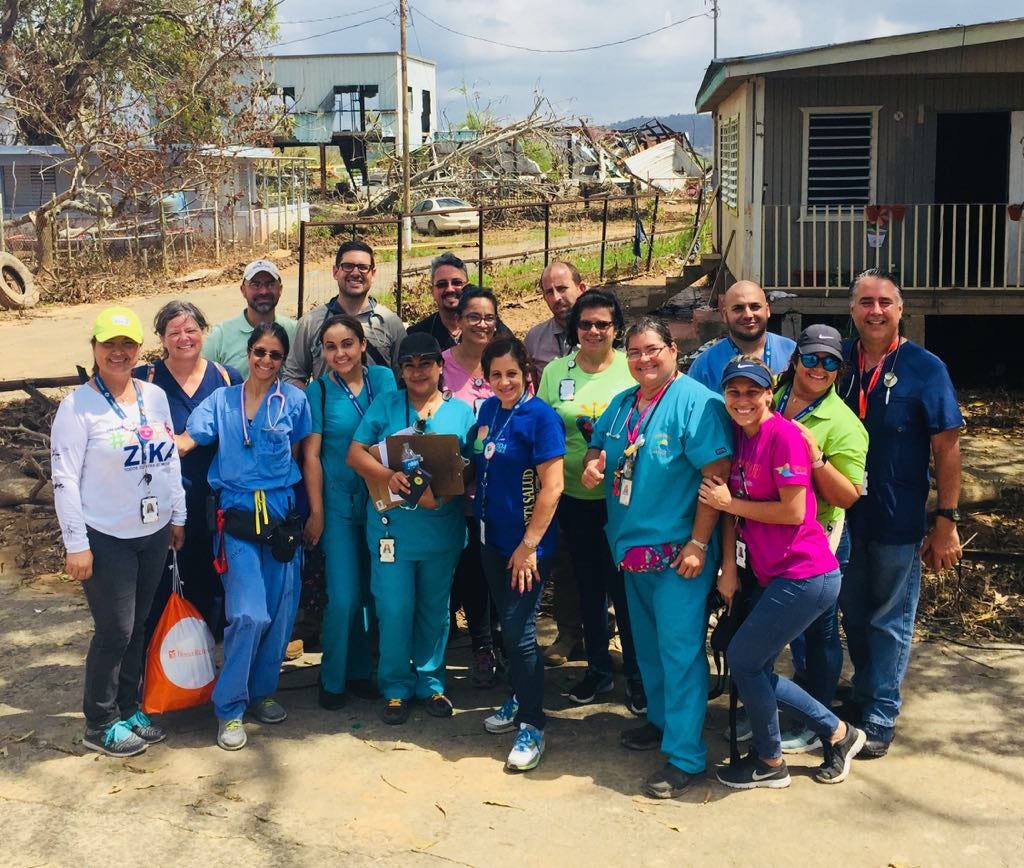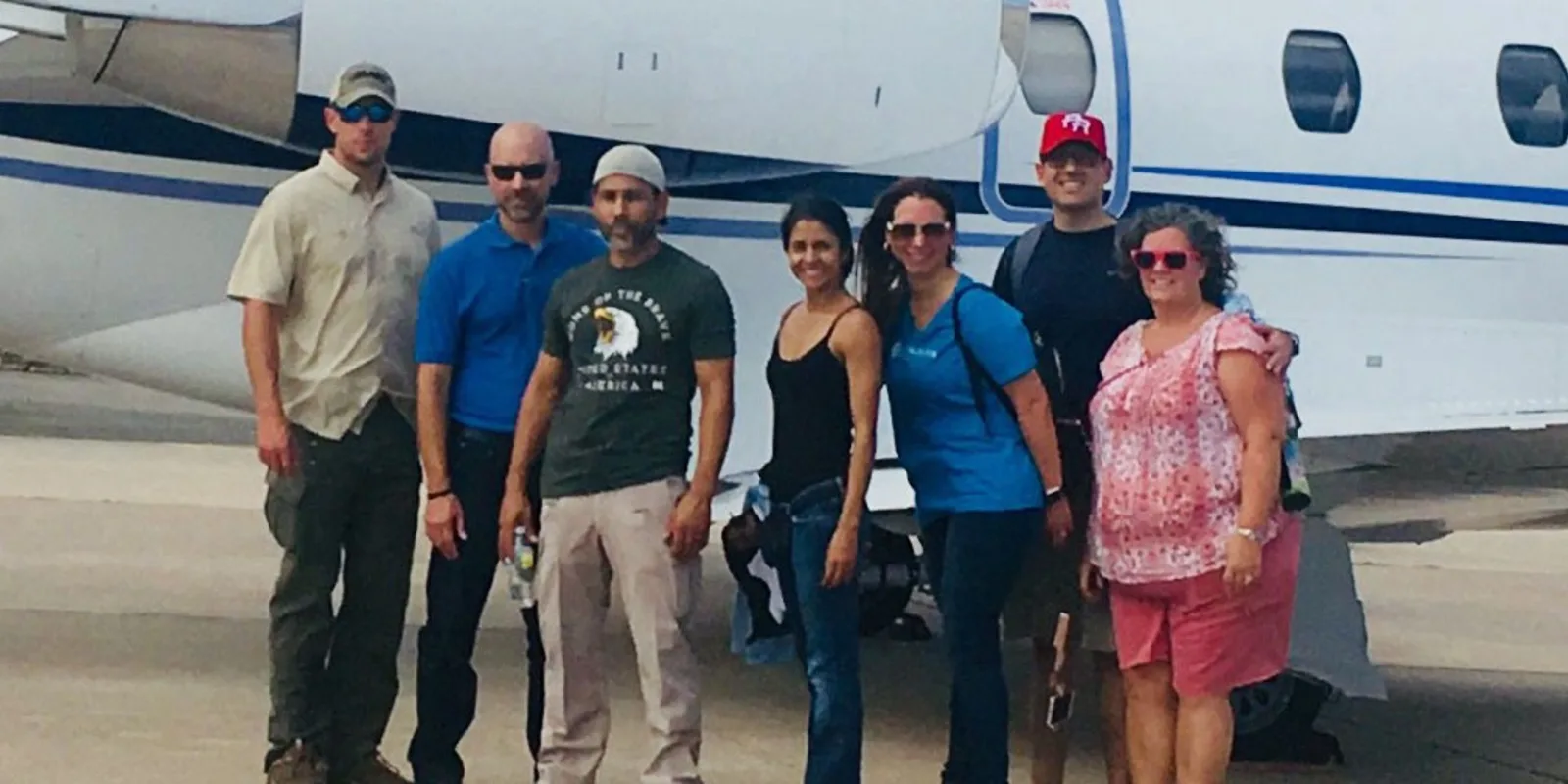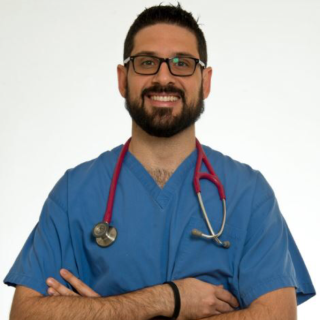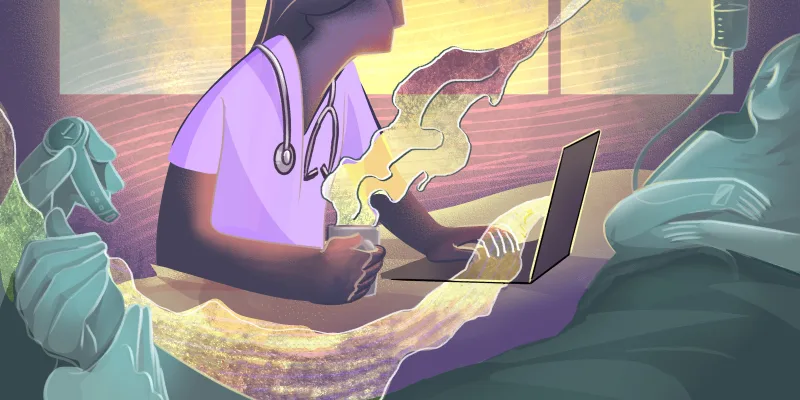How U.S. Physicians Can Help

As I looked for the words to describe the magnitude of what happened in the aftermath of Hurricane Maria, the news kept getting worse. Weeks after the hurricane hit, an alarmingly small fraction of the 69 hospitals in Puerto Rico were left with electricity or were fully operational.
I faced the desperate situation further as messages from a former colleague made it into my inbox. His fear? The imminent death of dialysis patients if water pressure, power, and basic supplies didn’t arrive within 24 hours.
The physician and the Puerto Rican in me was eager to get down to the island immediately after the rain stopped. I enlisted for every medical mission and forum I could find and made endless calls, desperately trying to find a way to help.
Two agonizing weeks after Maria’s landfall, I joined one of the grassroots efforts organized by fellow physicians. My group was led by Dr. Gretchen San Miguel. I didn’t know her personally, but we shared the same desire. Inexplicably, I had no fear, even when I knew that — at the time — 95 percent of the country didn’t have power, that water and food were scarce, and that logistics would be a nightmare.
Upon landing, our group — consisting of a wound care nurse, a general surgeon, a family physician, two S.W.A.T. members from Lake County Florida’s Sheriff’s office, an engineer in charge of logistics, and myself, a physiatrist — headed straight for the worst-hit areas on the west coast of Puerto Rico: Rincón, Aguada, Añasco, and Mayagüez.

First, we reached the town of Rincón, where the local community had impressively organized the help and needs of their people. There, the CDT (center for diagnostics and treatment) facility led by Dr. Edgar Rodriguez, MD and his very small team, opened its doors to collaborate. Given the poor access and lack of communication in the region, we found most patients by going from door to door and good ol’ word of mouth. We saw 400 patients within five days.
While I can call our mission a success, more than five weeks after the hurricane, an incredible 80 percent of Puerto Rico remains without power, and communication is almost impossible. This puts great pressure on Puerto Rico’s healthcare system with critical challenges at hand.
At this juncture, systems, supplies, and support must be properly organized through the right channels to ensure the efficacy and sustainability of any relief efforts. There is a lot the medical community can do in the meantime, and we need your help.
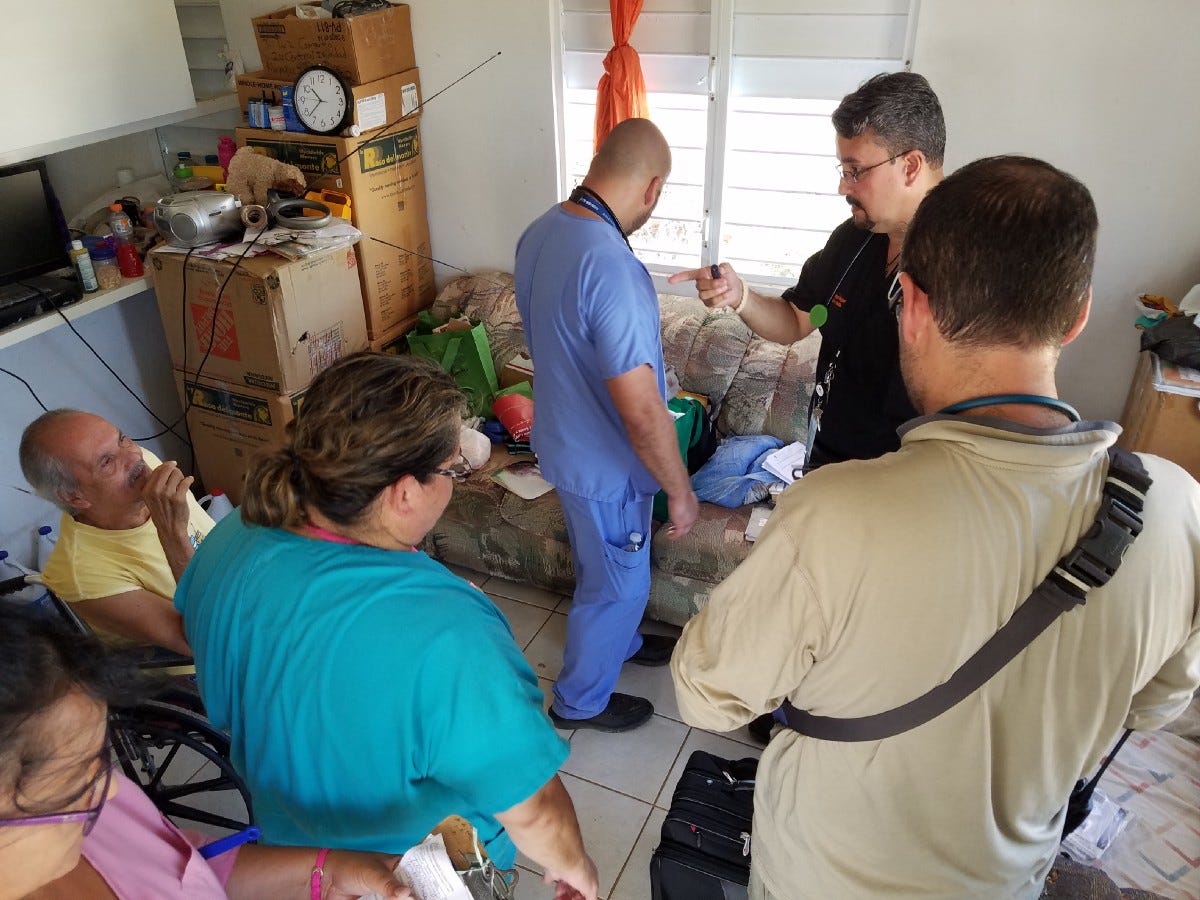
Plan Now, Respond When Appropriate
Arriving as a physician willing to help remains a limited mission, until organizational challenges like communication and logistics are overcome.
Social media messaging and networking among colleagues are the most effective tools to stay up to date on how you can help until hospitals can host the additional personnel. To learn more, follow and join official Facebook groups like Doctoras Boricuas and Puerto Rico Relief flight.
Searching for Solutions
Monetary donations are always important in the wake of a natural disaster, but the immediate impact may lag until basic infrastructure is restored.
Major hospital systems in the United States have the resources and experience to get much-needed professionals and supplies to Puerto Rico in an organized way.
It is the moment for leadership in these institutions to start collaborating and coordinating everything from bringing critical patients to the U.S. to on-the-ground efforts when the time is right.
Sustainable Support
I’m truly impressed with how many colleagues are actively looking to join the Puerto Rico relief efforts, wanting to pitch in and make a difference.
Ultimately, my advice is to plan for success by following the right process:
1. Systems. Help coordinate resources. Be sure to follow official sources like the Puerto Rico Relief Fund and grassroots initiatives actively making a difference like Puerto Rico Relief Flight for the latest information, and real-time communication and efforts.
2. Supplies. Leverage your relationships. Reach out to healthcare administrators, medical equipment manufacturers, and pharmaceutical companies to solicit clinical donations. Prioritize needs in key categories including medications (insulin, antibiotics, pain, psychiatric) and supplies (IV fluids).

Forums like Doctoras Boricuas make the process easy by offering downloadable relief request letter templates that can be customized to address leaders at medical firms, institutions, or partners.
3. Support. Metro areas of Puerto Rico, like San Juan, are home to the primary hospitals in the country and will naturally receive most immediate help. But we must not forget the rest of the of the island. Hard to reach towns like Rincón, Utuado, and Añasco, weren’t only some of the most affected but also the most in need.
It is important to determine how much time you can spare to volunteer, be it for soliciting or to be on the ground so things can continue running smoothly in your practice and home life. If planning to go, make sure the time is right — when systems are in place to ensure healthcare workers and supplies can and will reach the people who need them most.
As you prepare, be sure to line up your resources and assess your strengths to help make a true difference for the people of Puerto Rico. We thank you.

Dr. Ricardo Vasquez-Duarte is a graduate from University of Puerto Rico Medical School. He is boarded in Physical Medicine & Rehabilitation and Sports Medicine. He is currently in private practice in Miami and Hialeah, FL. He was born and raised in San Juan, Puerto Rico. He recently returned from a week-long medical mission as part of the efforts organized by “My Heart is 100x35.”
